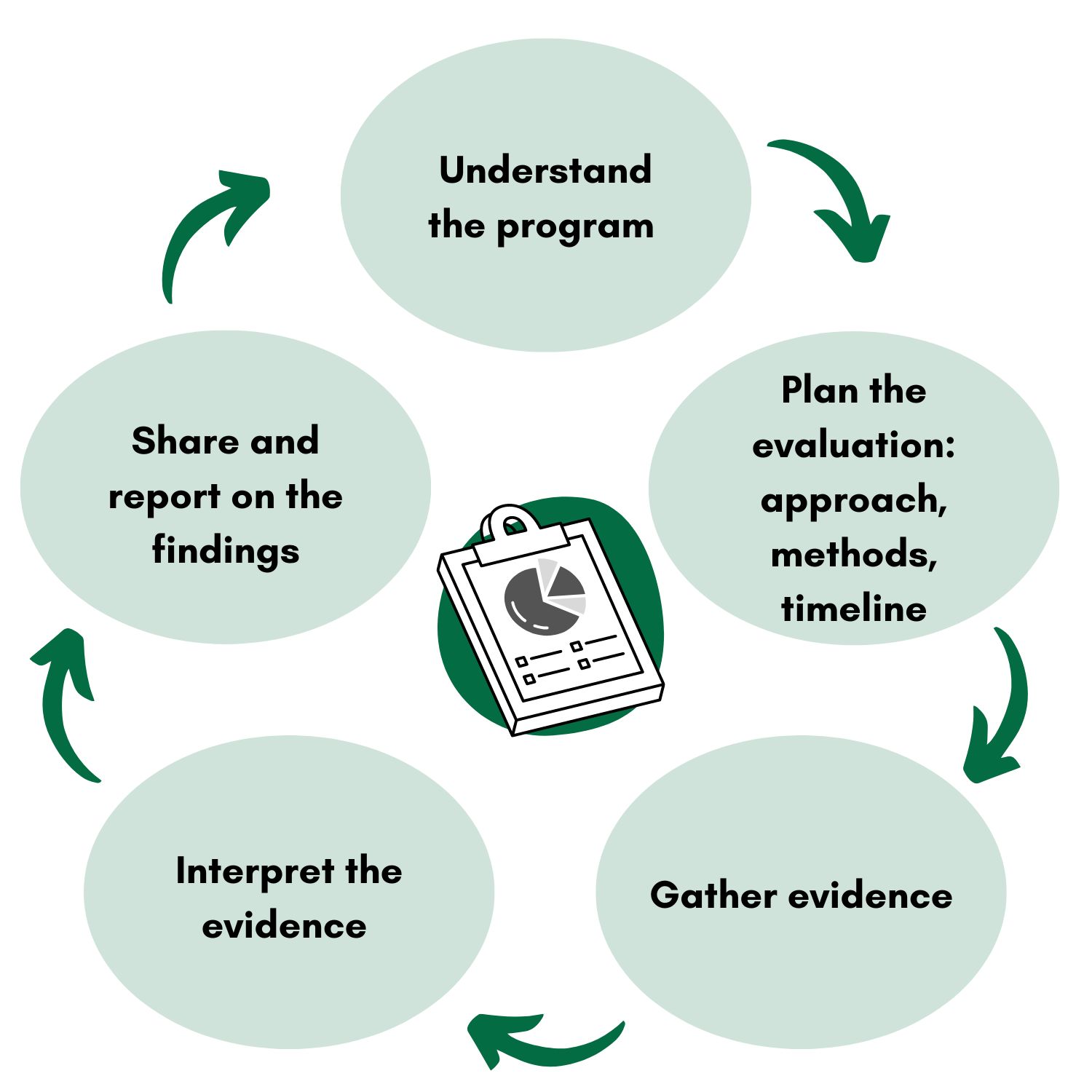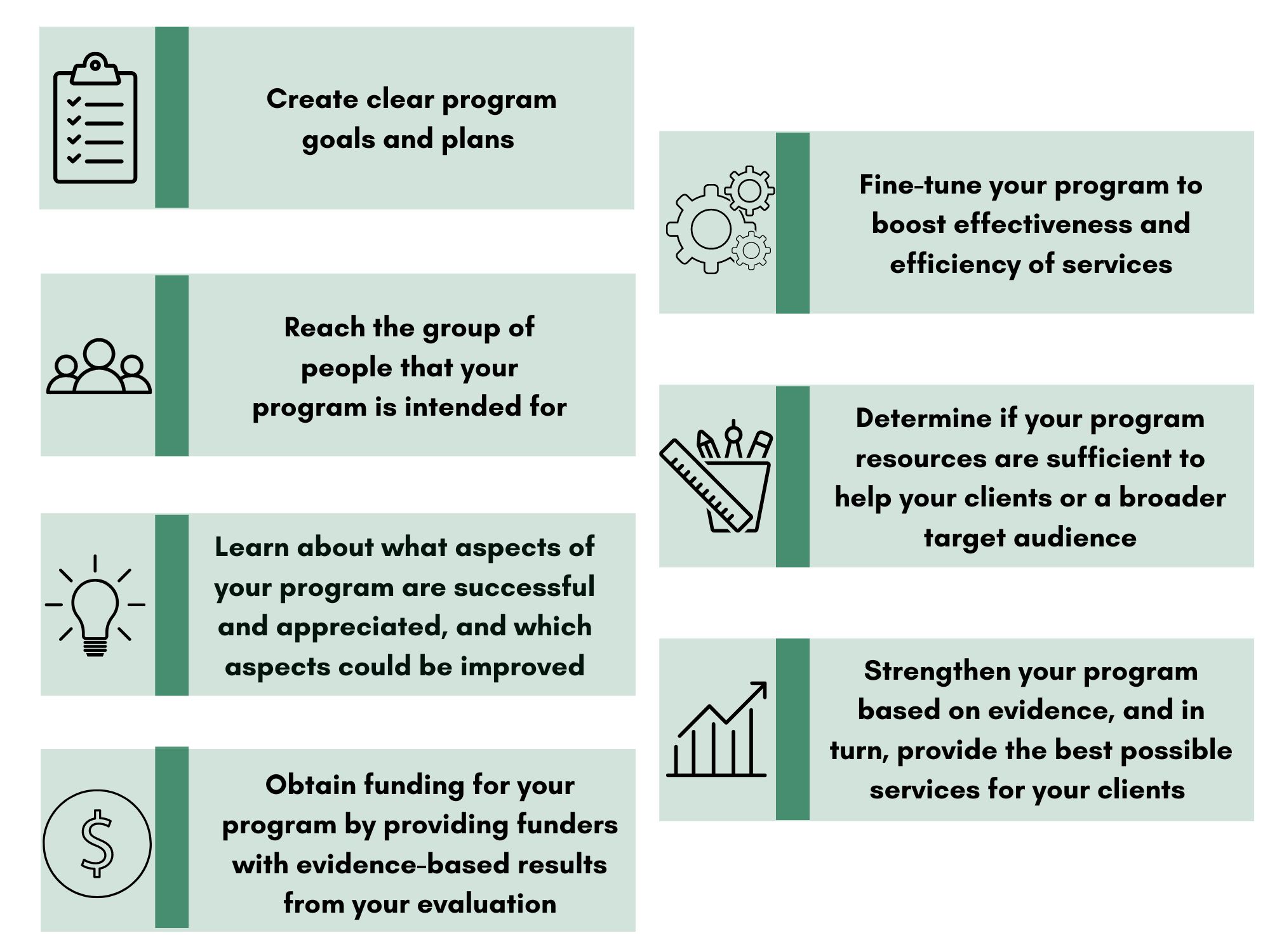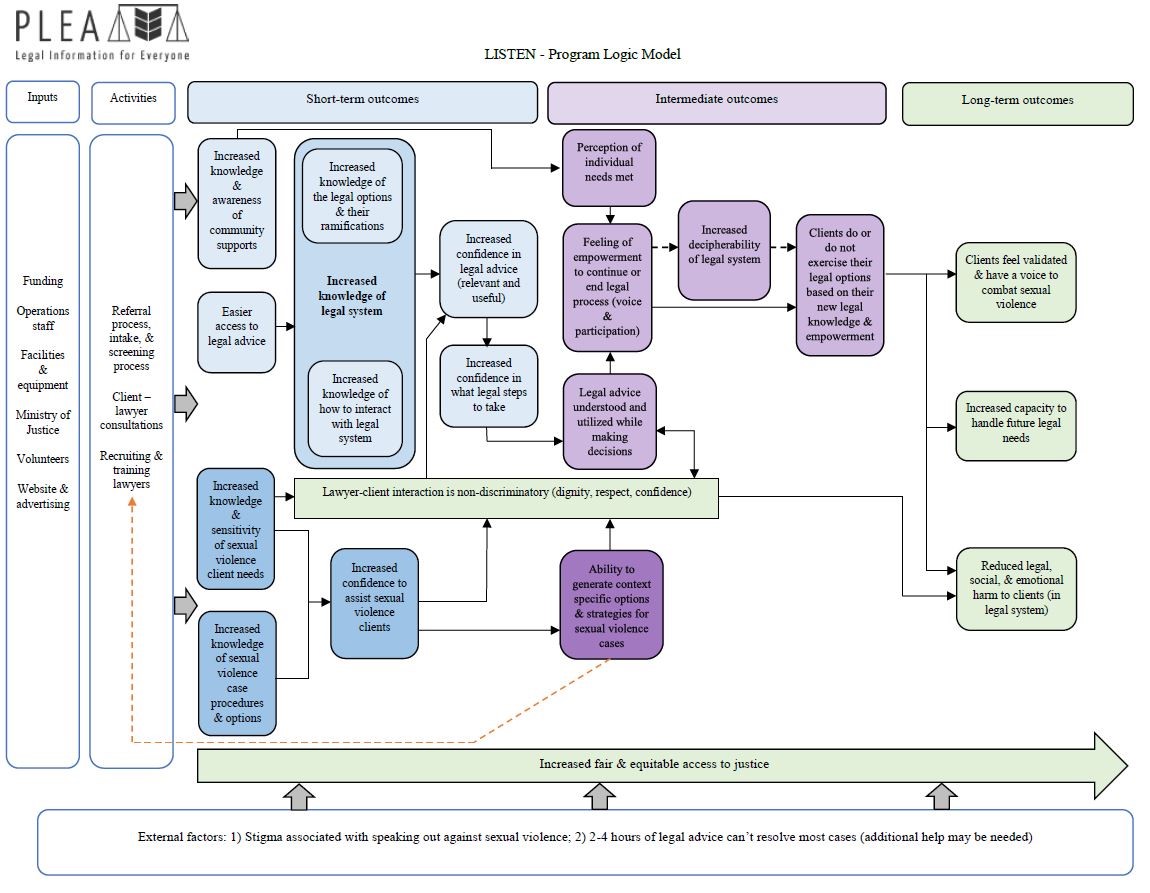What is Program Evaluation?
At a basic level, evaluation is a way to better understand your program, intervention, or activity. It allows you to discover if what you’re doing is effective, efficient, and impactful. More specifically, evaluation is a systematic process of understanding a program, coming up with a plan to answer key questions, gathering evidence, sharing the findings, and adjusting your program as desired:

The term program can refer to initiatives, projects, events, policies, campaigns, or other activities that are intended to produce some type of change in people, organizations, and/or society. You may be interested in an evaluation if you would like to develop, improve, or highlight the value of your program.
Three broad types of evaluation address these goals:
- Formative evaluation: Evaluations that are conducted to gauge the early successes of a program and can be used to improve or strengthen a program to ensure continued success and the achievement of long-term goals and high-level impacts.
- Summative evaluation: Evaluations that explore overall value or merit of the program by assessing the extent to which intended outcomes are met. These evaluations tend to be conducted as a program approaches the end of a funding cycle or a logical stopping point. Summative evaluations can assist in determining if a program should continue, expand, or be altered.
- Developmental evaluation: Evaluations that assist in developing programs that operate in uncertain and constantly changing contexts. These evaluations are appropriate for programs that address complex issues, such as global warming. The evaluator becomes part of the decision-making team to provide regular, timely feedback about the program so that meaningful changes can be made on an ongoing basis.
Why is Program Evaluation Important?

CHASR Evaluation Services
CHASR evaluation specialists can collaborate with you to plan and design your program evaluation.
We can develop or consult on:
- Evaluation frameworks/plans: Identifies the “who”, “what”, “when”, and “how” of your evaluation, describes what steps will be involved in your evaluation, and outlines methods that will be used to answer key evaluation questions. Frameworks can range from a single time point to a multi-year evaluation.
- Evaluation matrices: A simple-to-follow guide on what questions you want answered, what information you will collect, how you will collect the information, and how you will use it to answer your evaluation questions.
- Logic models/theory of change: Logic models illustrate how your program is intended to operate by showing the links between program resources and activities, and expected outcomes (e.g., behavior change) for your target audience. CHASR can also provide narratives that accompany logic models that explain why we expect your target audience to experience certain changes (e.g., using social science theories).

Needs assessments can help identify priorities for developing or improving your program. CHASR evaluators can design and implement a needs assessment using best practices in program evaluation to pinpoint the needs of a target group, gaps in existing services, or assist in decision-making regarding resource allocation.
Process evaluations explore program operation and the extent to which programs are implemented and working as intended when they were initially designed. Process evaluations examine program resources, activities, target audiences, and outputs. This type of evaluation is ideal to conduct in the early stages of a program, though it is important to collect process data at each stage of an evaluation. Based on this information, CHASR evaluators can recommend any changes needed to facilitate your program’s success.
Outcome and impact evaluations are used to explore the extent to which your program’s target audience is experiencing expected outcomes. CHASR can assist you in identifying your intended outcomes through the development of a logic model or theory of change. Using these theory-based tools, CHASR evaluators can highlight your program’s success and provide recommendations for achieving even greater impacts.
CHASR employs experienced specialists trained in program evaluation who can design and implement top-notch evaluations at competitive pricing. CHASR uniquely provides access to facilities and expertise in various areas (i.e., survey design, interviews and focus groups, mapping and data visualizations) that can augment the quality and usability of your evaluation. Whether a beginning-to-end evaluation or a tailor-made format, CHASR’s experienced evaluators can work collaboratively with you to ensure your evaluation needs are met.

